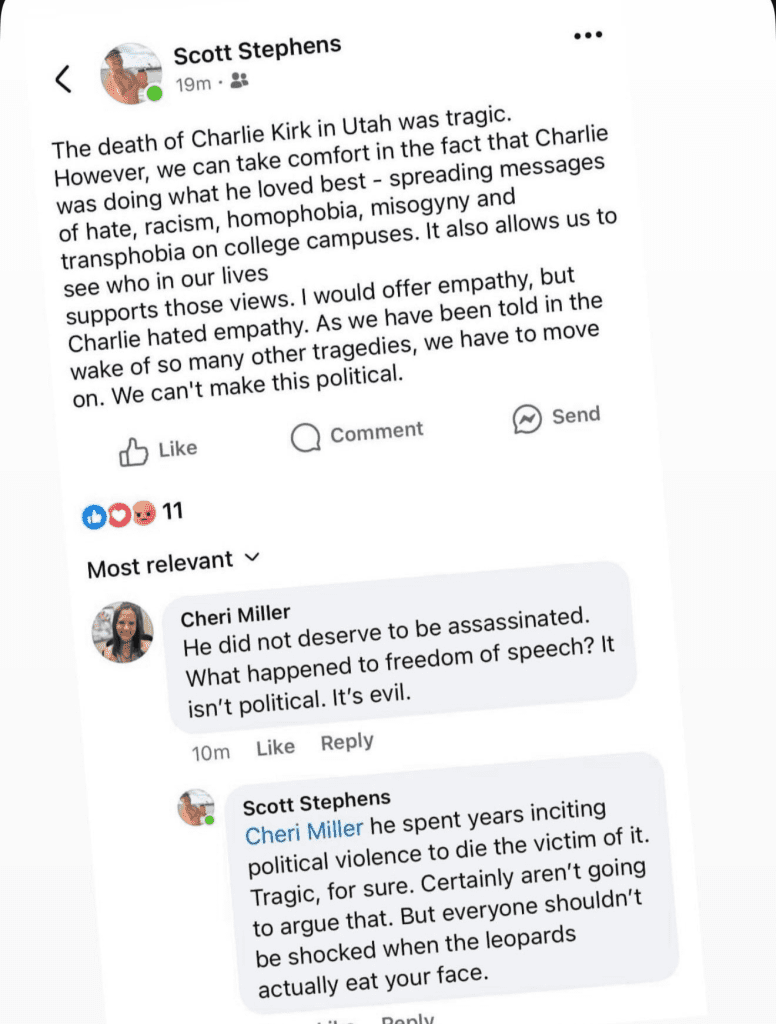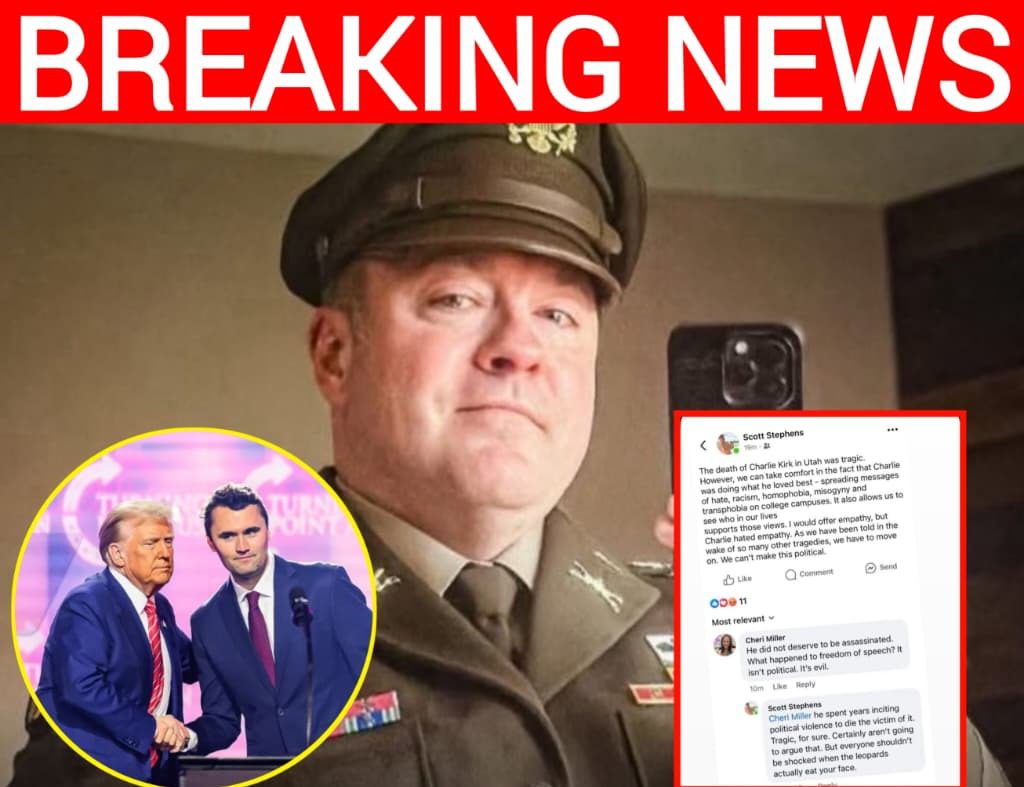Army Colonel Scott Stephens Suspended After Justifying Charlie Kirk’s Death, Sparking Outrage Across America
The U.S. Army has officially suspended Colonel Scott Stephens after his Facebook comments about the killing of Charlie Kirk ignited outrage both inside and outside the military. Stephens, who had been serving in Utah, made remarks online suggesting that Kirk’s death was the result of his own years of political activism, drawing immediate backlash. His post described Kirk as someone who “spread hate” on college campuses and implied that the violence that took his life was not surprising. Those words, shared at such a sensitive moment, were quickly seen by thousands and stirred anger across the nation.

The comments came at a time when emotions were already raw. Charlie Kirk’s killing had sent shockwaves throughout the country, with vigils, memorials, and tributes pouring in for a man many admired for his strong voice and influence. For someone in uniform, a decorated Army officer, to publicly dismiss the tragedy in this way struck a nerve. People questioned how a military leader could speak so coldly about the death of a fellow American, especially given the Army’s code of honor, duty, and respect.

The fallout was swift. Secretary of War Pete Hegseth, who has made clear that the military cannot tolerate political bias or hateful rhetoric within its ranks, announced that Stephens would be suspended pending a full investigation. The move was framed as necessary to preserve the integrity of the armed forces and to ensure that military leadership reflects the values of discipline, respect, and impartiality. Hegseth emphasized that comments like these erode public trust in the military and create division at a time when unity is needed most.

For many Americans, the suspension was more than just a disciplinary measure—it was symbolic. It represented a pushback against what they see as the infiltration of political radicalism within the military. Social media lit up with comments from veterans, active duty soldiers, and ordinary citizens who applauded the decision, arguing that the military must remain free from partisan politics. Others pointed out the irony of someone sworn to protect American freedoms showing so little empathy toward a citizen exercising those very freedoms.
Stephens, who had shared photos of himself in uniform on social media, now finds his career hanging in the balance. While some defended his right to personal opinion, most agreed that his role as a senior officer comes with a higher standard of conduct. Words spoken in uniform—or even online while holding rank—carry weight, and the Army has long maintained that officers must avoid statements that bring discredit upon the service.

This controversy also highlights the broader cultural divide in America right now. Charlie Kirk’s death has become not just a personal tragedy but a flashpoint in the ongoing battle over free speech, political polarization, and the boundaries of acceptable discourse. The Army’s decision to act against Stephens signals that the institution is aware of how closely the public is watching, and that it will not allow officers to undermine its reputation by speaking in ways that inflame already deep divides.
At the heart of it all, though, is a simple truth: a man lost his life, a family is grieving, and a nation is grappling with what that loss means. The suspension of Colonel Stephens is part of that reckoning, a reminder that words matter, especially when they come from those in positions of authority. What happens next will depend on the outcome of the Army’s investigation, but for now, the message is clear—empathy and respect cannot be optional, even in moments of disagreement.


